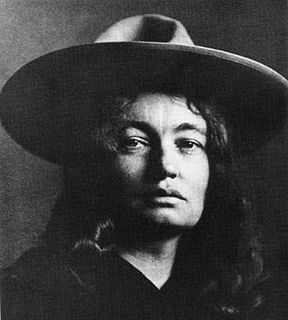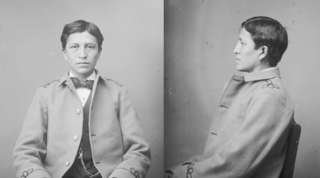A Quote by Mary Hunter Austin
Man is a great blunderer going about in the woods, and there is no other except the bear makes so much noise. ... The cunningest hunger is hunted in turn, and what he leaves of his kill is meat for some other. That is the economy of nature, but with it all there is not sufficient account taken of the works of man. There is no scavenger that eats tin cans, and no wild thing leaves a like disfigurement on the forest floor.
Related Quotes
It must be for truth's sake, and not for the sake of its usefulness to humanity, that the scientific man studies Nature. The application of science to the useful arts requires other abilities, other qualities, other tools than his; and therefore I say that the man of science who follows his studies into their practical application is false to his calling. The practical man stands ever ready to take up the work where the scientific man leaves it, and adapt it to the material wants and uses of daily life.
Going to the woods is going home, for I suppose we came from the woods originally. But in some of nature's forests, the adventurous traveler seems a feeble, unwelcome creature; wild beasts and the weather trying to kill him, the rank, tangled vegetation, armed with spears and stinging needles, barring his way and making life a hard struggle.
Nature. As the word is now commonly used it excludes nature's most interesting productions-the works of man. Nature is usually taken to mean mountains, rivers, clouds and undomesticated animals and plants. I am not indifferent to this half of nature, but it interests me much less than the other half.
Only to the white man was nature a "wilderness" and only to him was the land "infested" with "wild" animals and "savage" people. To us it was tame. Earth was bountiful and we were surrounded with the blessings of the Great Mystery. Not until the hairy man from the east came and with brutal frenzy heaped injustices upon us and the families that we loved was it "wild" for us. When the very animals of the forest began fleeing from his approach, then it was that for us the "Wild West" began.
It is a delicious thing to write, to be no longer yourself but to move in an entire universe of your own creating. Today, for instance, as man and woman, both lover and mistress, I rode in a forest on an autumn afternoon under the yellow leaves, and I was also the horses, the leaves, the wind, the words my people uttered, even the red sun that made them almost close their love-drowned eyes.
What do they say about meeting a bear in the woods? Oh right, you shouldn't. And to make sure you don't, you should make a lot of noise so that they'll will know where you are and keep their distance because, supposedly, they're as nervous of us as we are of them. Which is all goo, except this bear doesn't seem the least bit nervous. He's giving me a look like I'm Goldilocks, ate his porridge, broke his chair, slept in his bed, and now it's payback time."- Widdershins
Of course the Man was wild too. He was dreadfully wild. He didn't even begin to be tame till he met the Woman, and she told him that she did not like living in his wild ways. She picked out a nice dry Cave, instead of a heap of wet leaves, to lie down in; and she strewed clean sand on the floor; and she lit a nice fire of wood at the back of the Cave; and she hung a dried wild-horse skin, tail down, across the opening of the Cave; and she said, 'Wipe your feet, dear, when you come in, and now we'll keep house.
Man is not the most majestic of the creatures; long before the mammals even, the dinosaurs were far more splendid. But he has what no other animal possesses: a jigsaw of faculties, which alone, over three thousand million years of life, made him creative. Every animal leaves traces of what he was. Man alone leaves traces of what he created.





































